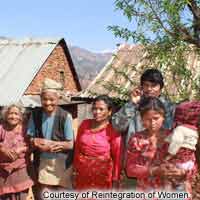Reintegration of Women with Mental Illness

Project Information
Restoring the dignity of abandoned mentally-ill women & reintegrating them into families & society
Describe the need affecting community
How will this Advance project help to address the need?
Through this project, KOSHISH will address the need of women experiencing psychosocial issues related to GBV, by rescuing people them from vulnerable situations: abandoned in the streets, locked up, chained. Simultaneously addressing the need for room and board, counseling, medication and skill development. Room and board will provide both a safe residency and nutritious food, for beneficiaries during their recovery from psychosocial issues. While living at the emergency short-term rehabilitation center, counseling coupled with medication will be provided, this will promote a healthy mind and work towards reintegration and rehabilitation of women. Finally, skill development will solve the need of feeling independent, and the confidence to be reintegrated back into the community with a purpose.
Describe the primary goal of the project
Our goal is to support women experiencing psychosocial issues related to GBV, by rescuing them from vulnerable situations and supply them with a safe environment for recovery. Thereafter, the women will be reintegrated back into their communities with the skills and mindset to live healthy and productive lives.
Describe the change you would like to see in the community as a result of this Advance project
One change we envision is to reduce the number of women experiencing GBV with psychosocial issues living in vulnerable conditions. The perceptions regarding psychosocial issues changed in a positive manner.

